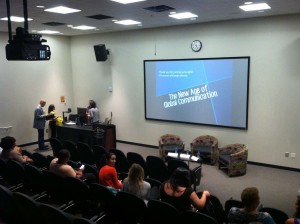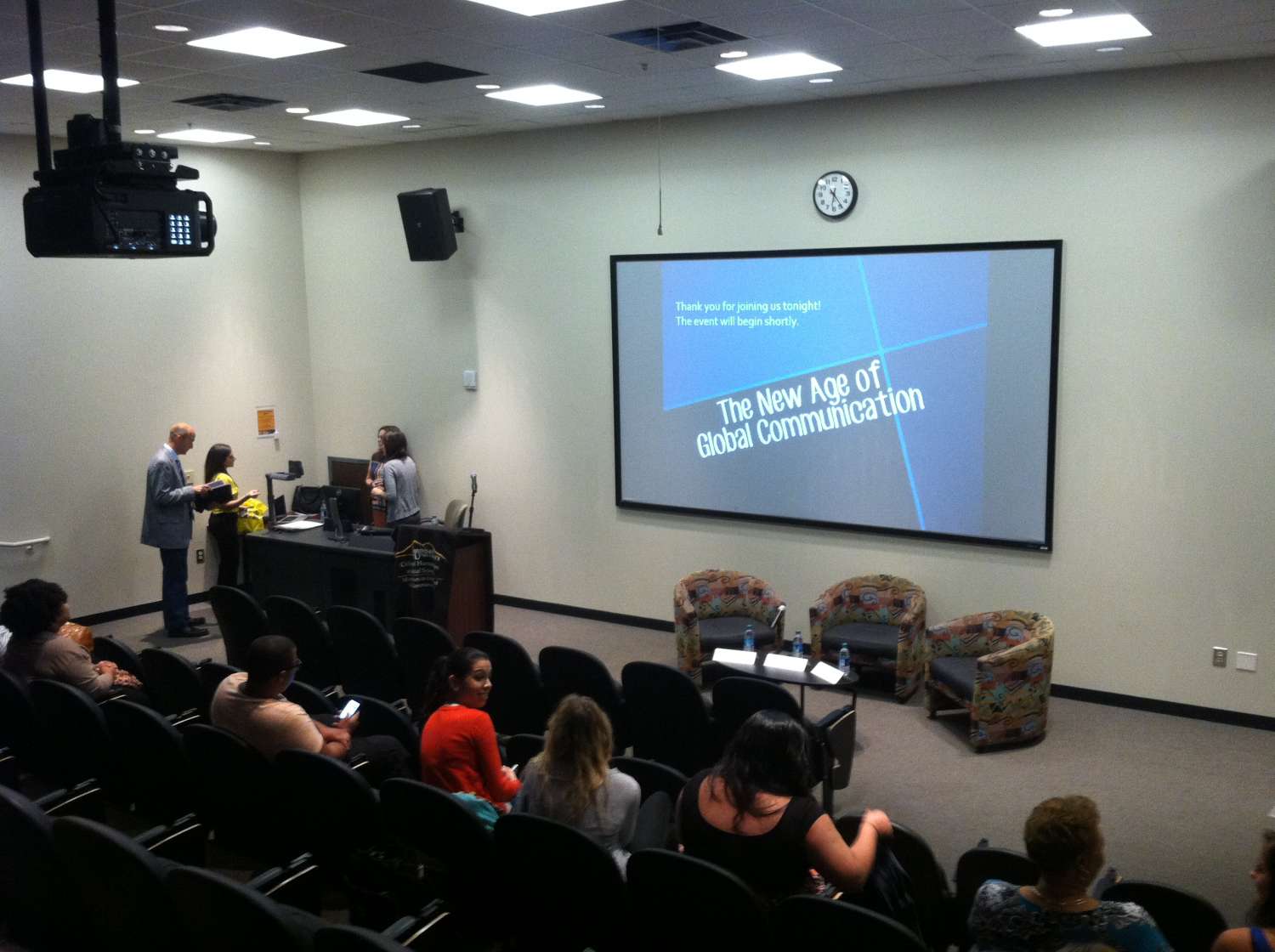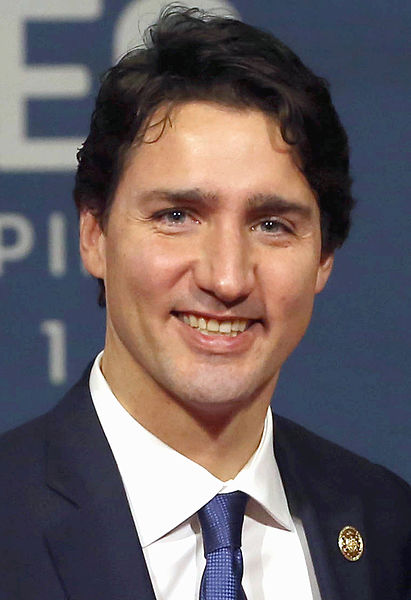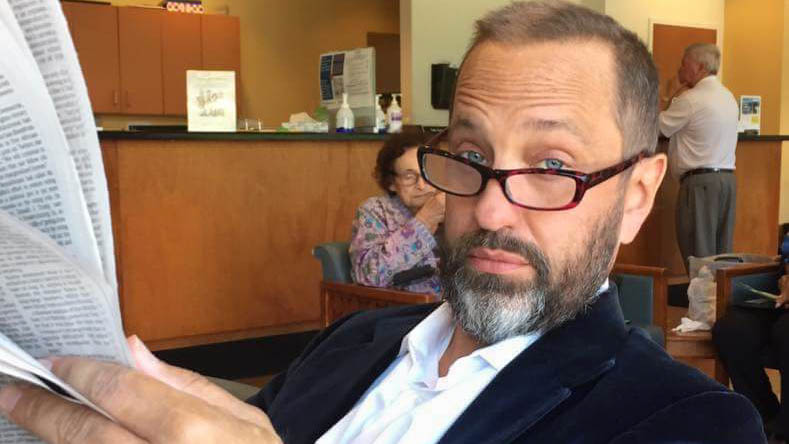
James Sears, Staff Writer
A student-organized speaker series at Kennesaw State University last week featured
communication professionals who spoke to students to offer their knowledge of global communication and creative problem-solving.
“The New Age of Global Communication: An Integrated Approach” speaker series was
held in the Social Sciences Building on Oct. 10 and featured professionals from several areas of global communication, ranging from public relations, marketing, digital media and others. The speakers featured were Director of Communication and Media Relations, Brian Feagans of CARE; Partner and Managing Director, Hilary Hanson McKean of Ketchum; and Global Public Relations Senior Manager, Kate Hartman of the Coca-Cola Company. The event was organized by students of the Master of Arts in Integrated Global Communication program, which prepares students for communication professions in a global environment.
“I am very impressed with the panel of speakers that the students came up with,” said
Charles Mayo, director of the MAIGC program. “This was entirely done by the students; they conceived it, they organized it, they brought the speakers in, so it was a totally student-done project.”
The event had the speakers answer questions submitted by students. The questions
concerned topics such as the most important skills and traits a global communication professional should have.
“I’m always looking for personality,” Hartman said. “You can learn a lot in a classroom and learn about the world in a class room, but at the end of the day you have to be able to work, especially in our field, with all sorts of personality types from the media to your clients. So I think an open, energetic personality springs out to me as well as the willingness to jump in and do just about anything.”
The word “authenticity” then came to mind when the next question asked what it meant
to be authentic.
“To me, it’s kind of understanding your audience.” Feagans said. “When we’re
communicating in CARE…Say if we are getting information from a country where we work, being authentic is understanding that culture. … At the other end, being authentic is understanding the audience you’re communicating to…You’re going to be authentic if you understand that, okay, this audience maybe doesn’t understand this particular concept and you take the time to explain it to that audience rather than just assuming they know something. Third … back up what you say.
The next question dealt with how topics such as religion, culture and language influence
global communication.
“When you’re doing global campaign development, think less about the words and more
about the underlying meaning,” McKean said. “There are universal human needs, human truth and emotional drivers and believe me, those carry across cultures.”
Hartman then stepped in to illustrated this point by talking about a machine developed by
Coke called a “small-world machine.” Hartman explained that last year, two machines were created, one for Pakistan and one for India, and placed in the bordering countries. Both machines serve as an interactive portal and requires users on both ends to interact with each other to get a Coke. A video was then shown to demonstrate both machines.
Another question mentioned the growing social media market and what the future holds
for the medium.
“Social media is great for creating buzz, awareness, being part of the conversation and …
the next step for us is turning that into real action,” Feagans said. “In our case, donations and meaningful advocacy actions to support our work. A recent example was the ice bucket challenge, so everybody’s looking for the next step.”
Hartman added, “No matter how you slice it in public relations, no matter what area
you’re in, at the end of the day it’s about building relationships and social media gives us … an amazing opportunity to build relationships with the people who make us a number one brand,” Hartman added. “I think [social media] is only going to strengthen the relationship even more if we treat and respect it for what it is because it’s such a big environment.”
The final submitted question asked if there was a concern with being a jack of all trades
and a master of none in global communication. The speakers agreed that it is wise to gain experience in different areas during one’s career path.
“If you’re in your first phase of your career … you should be trying to do as many
opportunities that people give you, and you should take them all,” McKean said.
For more information on the MAIGC program, the speakers and their backgrounds,
check out http://maigc2014.wix.com/colloquium.



